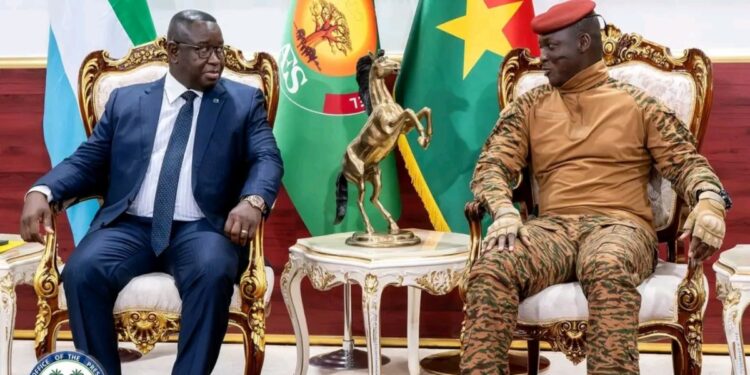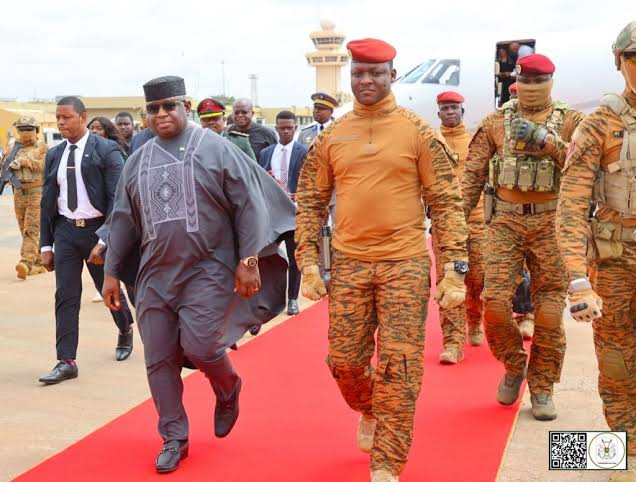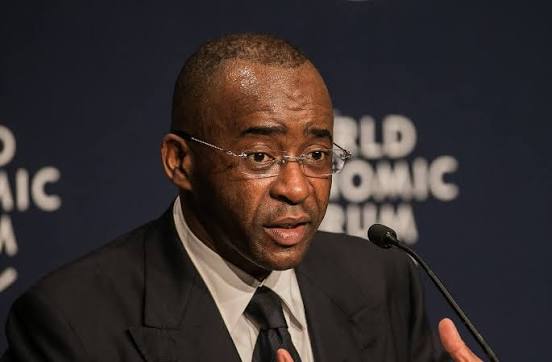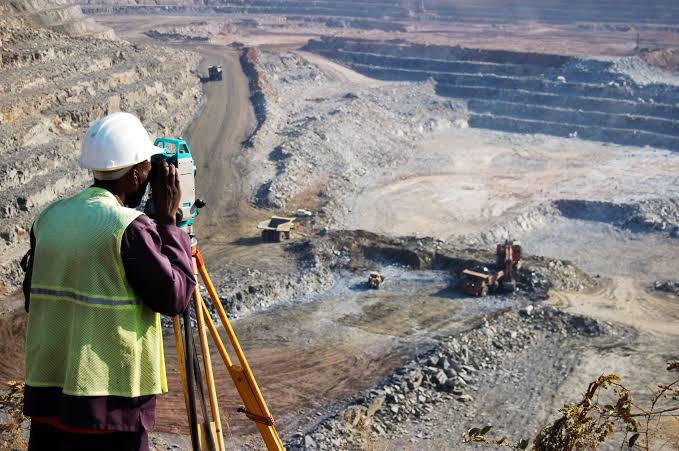
Faith Nyasuguta
In a development analysts call historic, Sierra Leone’s President Julius Maada Bio – who became chair of ECOWAS in June – made a surprise one-day trip on Tuesday to meet with Burkina Faso’s revolutionary leader, Captain Ibrahim Traore, at the presidential palace in Koulouba. This marks the first time an ECOWAS head has officially visited a state in the Alliance of Sahel States (AES) following its farewell to ECOWAS earlier this year amid rising regional tensions.
Bio pledged to strengthen cooperation between ECOWAS and the Sahelian bloc in hopes of “making sure that peace returns to Burkina Faso.” In an address shared on social media, he expressed solidarity with the people of Burkina Faso, insisting they are not alone and that ECOWAS is ready to work together to restore peace and stability.
The context: Burkina Faso – along with Mali and Niger – formally withdrew from ECOWAS on 29 January, 2025. These countries, all led by military juntas, formed the Alliance of Sahel States in 2023, citing concerns over ECOWAS’ handling of coups, sanctions, and regional security.

Discussions during Bio’s visit reportedly touched on regional security, international relations, and future collaboration between the blocs. Analysts interpret his gesture as a possible acceptance by ECOWAS of the reality of the breakaway AES grouping. “They’ve accepted it now, there won’t be any more talk from ECOWAS for the Sahel countries to come back,” stated Ulf Laessing, head of the Sahel program at the Konrad Adenauer Foundation. This, he noted, was among the “most optimistic, most upbeat” commentary from ECOWAS in recent times.
Bio publicly thanked Traore for his hospitality and emphasized that ECOWAS has long championed peace, security and prosperity – and that working together with Burkina Faso is essential to uphold those shared values.
AES itself – the alliance of Burkina Faso, Mali, and Niger – was formed as a defensive and mutual assistance pact, partly in response to ECOWAS threats to intervene during Niger’s coup. It has since declared its intent to move toward deeper political, economic, and security integration, including plans for a joint military force, shared infrastructure, and proposed confederal institutions.
Bio’s visit may thus mark a turning point: ECOWAS appears to shift from insisting on reversal of AES’s exit to exploring how to engage with the new bloc. Key issues like free movement, border security, and regional stability loom large amid growing threats from terrorism and displacement across the Sahel. Already, both sides face pressing challenges: the AES states are among the most affected by terrorist activity globally, and ECOWAS’s credibility and influence have taken hits following the loss of three member states.
What happens next remains uncertain: Will ECOWAS formally recognize AES’s separate institutions? Can both blocs cooperate without undermining sovereignty claims? And how will external players adapt to a West Africa reconfiguring its alliances? Bio’s trip suggests ECOWAS is now seeking dialogue, not estrangement -a possible doorway to a revamped regional order in a volatile region.
RELATED:








